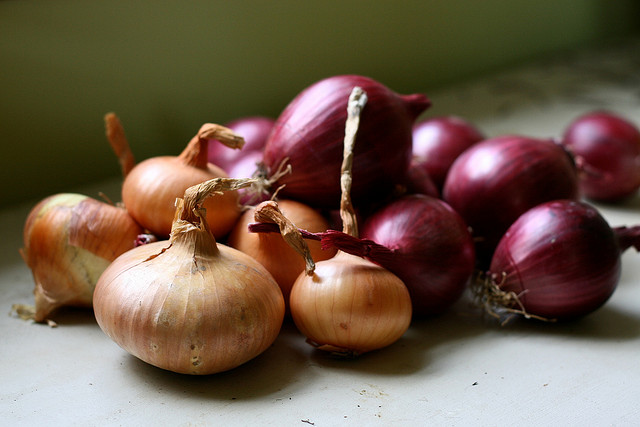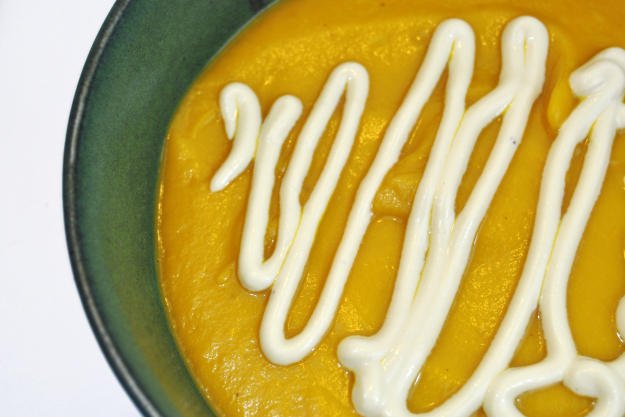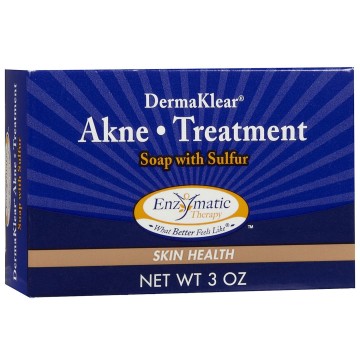Eat your onions: The beauty benefits of sulfur abound!
While it’s often true that beautiful scents, textures, and tastes have beautiful effects on the body— deep blue blueberries with complexion-brightening antioxidants, creamy, skin-plumping avocado… But stinky foods have a large part to play in our beauty-from-the-inside-out regimens. Case and point: Sulfur-residue foods.
You may know sulfur as the “rotten egg smell,” and while that may be an accurate description, sulfur does your body good. A critical nutrient for physical well-being, sulfur is essential for strong connective tissue, bones, teeth, skin, hair, and muscles. The natural mineral also helps us metabolize and absorb fat while aiding in blood sugar management. Sulfur is found in some of our most pungent foods—like onion and garlic, but it’s also nicely tucked into less biting foods—like hemp and pumpkin seeds (who knew?).
Sulfur-residue foods include: arugula, spicy cabbage, durian, hot peppers, broccoli, Brussels sprouts, garlic, hemp seeds, kale, maca powder, noni, onions, pumpkin seeds, radishes, spirulina, and watercress. Most of these foods are pretty common and easy to find in your average grocery store, which just goes to show that beauty foods don’t have to be exotic or expensive.
Symptoms of sulfur deficiency include: acne, arthritis, brittle nails and hair, depression, digestive issues, hypoglycemia (low blood sugar), low immunity, memory loss, rashes, scar tissue, and slow wound healing.
Given that sulfur is integral in the formation of fat-digesting bile, raw foodist David Wolfe recommends combining sulfur-residue food with plant fats (like avocado, olive oils, nuts, and seeds). Although there is no recommended daily allowance of sulfur or minimum daily requirement, for that matter, 800-900mg may be the optimal range for the average adult. (It seems odd that sulfur, which plays such a vital role in our health, hasn’t been given more attention from the FDA). For a sulfur-rich recipe, try this caramelized onion and sweet potato soup sprinkled with hemp or pumpkin seeds.
Sulfur can also be used topically for some noticeable beauty and health benefits. Sulfur is an ancient treatment for acne, eczema, and psoriasis. With comedolytic and keratolytic properties, sulfur absorbs excess oil (i.e., it “dries out” problem areas) while encouraging cell turnover, reducing the chances of clogged pores. Sulfur is also a mild antiseptic, so it can help disinfect skin and prevent the spread of bacteria.
I remember using a sulfur mask for the first time when I tried Proactiv as a teen. I stopped using it before I could really see results—mainly because I wasn’t terribly enthused with the Proactiv line. Now that I’m more convinced of the skin-healing properties of sulfur, I’d be more likely to try a sulfur product from a more natural, cruelty-free brand. For example, this affordable DermaKlear Akne Treatment Sulfur Soap would be a good place to start. Formulated with aloe, chamomile, hawthorn berry extract, rosemary, and sage, this simple soap may even have additional skin benefits.
Alternatively, if you’re suffering from permanent scarring, an MSM cream may help reduce the appearance of your scars. MSM (Methyl-Sulfonyl-Methane) is an organic form of sulfur and occurs naturally in some plants. When taken in capsule form, MSM may help alleviate allergies, improve muscle recovery, strengthen hair, and improve skin clarity.
Have you experience the beauty benefits of sulfur or have any favorite sulfur-infused products?
More natural beauty tips: Beauty Benefits of Resveratrol
Beauty Benefits of Clary Sage Oil
Beauty Benefits of African Black Soap
Get more like this—Sign up for our daily inspirational newsletter for exclusive content!
Photo: Susy Morris via Flickr, Ilene Godofsky, Amazon







